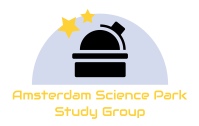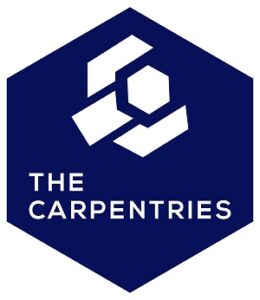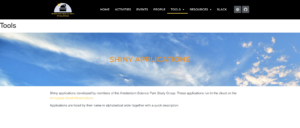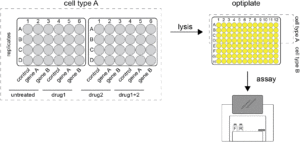Amsterdam Science Park Study Group
LET'S MAKE RESEARCH FASTER, BETTER AND MORE OPEN!
EVENTS
Genome sequencing and annotation have paved the way for the development of genome-scale constraint-based metabolic models (GEM) for various organisms1. These GEMs computationally describe gene-protein-reaction associations across the entire metabolic network of an organism, allowing for the prediction of metabolic fluxes in a range of systems-level metabolic studies. This workshop will introduce computational modeling of genome-scale metabolic reaction networks through a scalable framework known as constraint-based modeling. Constraint-based modeling is a powerful modeling framework that allows to model reaction fluxes in genome-scale metabolic network models, with uses in fundamental and applied questions relevant to biotechnology, microbiology, etc2,3. In this workshop, you will be introduced to:
- Content, structure and reconstruction of microbial genome-scale metabolic models
- The underlying mathematical foundations of constraint-based modeling
- Open source COBRA software, with a focus on the Python package COBRApy
- Two important methods of GEM manipulations: Flux balance analysis (FBA) and dynamic FBA
The workshop is structured into lectures and practical sessions so that theory can be illustrated with biologically motivated computational examples. The program of the workshop for Thursday July 11th:
- 13:00 – 13:45 Lecture Fundamentals of GEMs and an introduction to the COBRApy toolbox
- 13:45 – 14:30 Hands-on exercises with GEM model and basic COBRApy functions
- 14:30 – 14:45 Break
- 14:45 – 15:30 Lecture Introduction of microbial growth simulation
- 15:30 – 16:30 Hands-on exercises of FBA and dFBA
We anticipate 10-15 attendees. Register here: https://docs.google.com/forms/d/e/1FAIpQLSdt9ZxyK60pfwvZbBbYa7uAe-eKvnd15y6qkkuhLHkl9BNrVg/viewform?usp=sf_link
Note: Participants need to bring their own laptop with Python installed, need basic Python skills and will receive instructions about installing COBRApy before the workshop (otherwise they need to collaborate with participants who do have this).
- Gu, C., Kim, G. B., Kim, W. J., Kim, H. U. & Lee, S. Y. Current status and applications of genome-scale metabolic models. Genome Biol 20, 121 (2019).
- Heirendt, L. et al. Creation and analysis of biochemical constraint-based models using the COBRA Toolbox v.3.0. Nat Protoc 14, 639–702 (2019).
- Ebrahim, A., Lerman, J. A., Palsson, B. O. & Hyduke, D. R. COBRApy: COnstraints-Based Reconstruction and Analysis for Python. BMC Syst Biol 7, 74 (2013).
Please find a complete list of our past events on the dedicated events page.
WHAT WE DO
The Amsterdam Science Park Study Group is dedicated to building a community of computational scientists in biology and other disciplines.
This Amsterdam Science Park Study Group promotes skill sharing and collaboration by:
- organizing interactive coding workshops following the Carpentries Foundation
- regularly organising themed co-working sessions on specific topics
- bringing diverse researchers together to build dedicated tools
All are welcome regardless of their scientific research area, affiliation or training level.

Workshops
Two-day Data and Software Carpentry workshops to practice and learn coding. We also do shorter themed sessions.

Tool development
Creation of ad hoc applications and pipelines for research

Community Building
Meet your peers and start working together. Ask and answer questions.
Lorem ipsum dolor sit amet, consectetur adipiscing elit. Ut elit tellus, luctus nec ullamcorper mattis, pulvinar dapibus leo.



